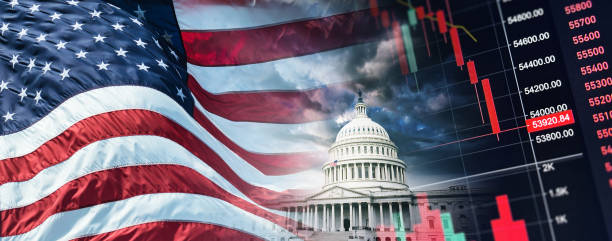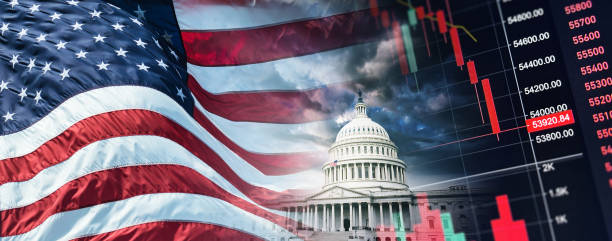Economy on the Ballot: As Americans Vote, Economic Worries Define the 2024 Election

This Election Day, as Americans head to the polls to cast their final votes, one issue stands above the rest: the economy. While the nation remains divided, the stakes of today’s election highlight the shared concerns of voters facing rising costs, uncertain job markets, and economic challenges in daily life. In a razor-thin race between former President Donald Trump and Vice President Kamala Harris, the economy has become the defining question as each candidate presents a contrasting vision for America’s economic future.

Trump’s final campaign stops, blitzing North Carolina, Pennsylvania, and Michigan, emphasized his familiar question, “Are you better off now than you were four years ago?” He made an appeal to Americans whose living costs have surged over recent years, with inflation concerns hitting every household. Trump has promised to rein in inflation, cut regulations, and prioritize domestic energy production, arguing these steps will ease financial pressures on American families. His message resonates particularly in regions facing slowdowns in manufacturing, agriculture, and small business—a swath of the country he believes is critical for victory.
Meanwhile, Harris spent her final campaign hours in Pennsylvania, concluding on the steps of Philadelphia’s famed “Rocky” steps, appealing to Americans with her promise of an economy that works for everyone. Harris advocates for affordable healthcare, strengthening middle-class jobs, and green energy investments to ease household costs while addressing climate issues. Speaking to her supporters, she emphasized her focus on underrepresented communities and workers, declaring, “We are the nation that stands up for those who need a hand and who fight to make ends meet.”
The tension in today’s election reflects polling that underscores economic concerns as a top priority. According to the final Emerson College Polling/The Hill survey, the economy remains the foremost issue for voters, contributing to the tight race in seven critical battleground states. Trump holds a narrow edge in Arizona and Georgia, but races in Michigan, Nevada, North Carolina, Pennsylvania, and Wisconsin remain within a statistical tie. These economically diverse states are set to play a decisive role as voters weigh each candidate’s approach to addressing economic instability.
With over 80 million early votes already cast, millions more will decide the outcome today in person, and for many, their vote is a response to their daily financial realities. As inflation and rising living costs persist, Americans’ concerns for economic recovery are pressing, making this election one of the most significant economic turning points in recent memory.
As ballots continue to be cast, America’s path forward remains in question. Will voters choose a return to Trump’s market-driven promises or Harris’s vision of economic inclusivity? One thing is certain: the next president will face an electorate hoping for economic relief, resilience, and stability in a changing world.




